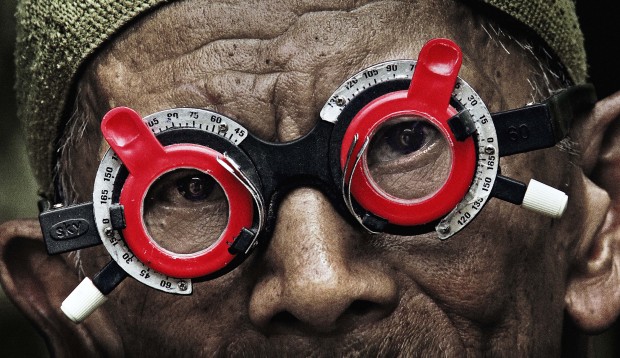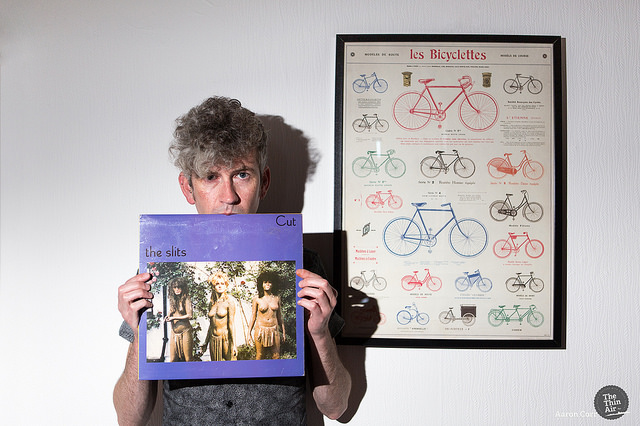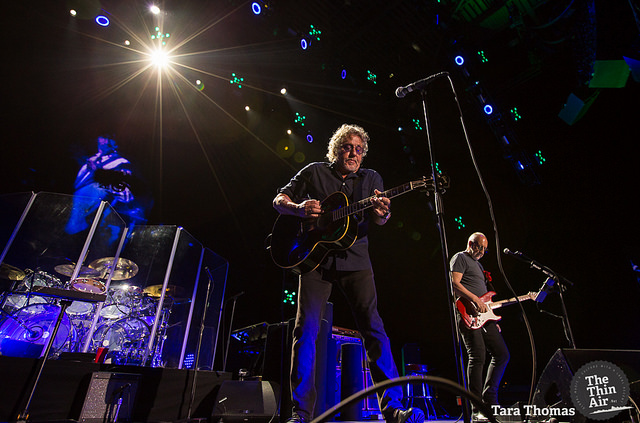Joshua Oppenheimer won the MacArthur Genius Grant in 2014, primarily off the back of his 2012 effort The Act of Killing, a brutal and genuinely disturbing masterpiece . The film was about the 1965 Indonesian military coup, the subsequent genocides in which over a million people were murdered and the nation that Indonesia became having been run by the men who committed these acts of killing. It was a film that asked the perpetrators of these acts to reenact them, all of whom did with a worrying glee, in order to help us understand the cultural mindscape of the nation on a macroscopic level. The film was about the victimisers, the culture which supports them and the authority that enabled them. The Look of Silence, in contrast, is about the victims, the culture which scorns them and the authority that suppressed them. It is a companion piece to The Act of Killing, it’s not a sequel or anything of that ilk. It’s the second half of the horrific whole.
The film is told through the eyes of Adi, an Indonesian optician whose brother Ramli was brutally murdered by the death squads during the genocide. Throughout the film he visits a variety of people under the pretense of performing eye examinations. During his procedures, he talks to these people. He talks to them about what they remember from the period, their views of those killed and, in many cases, how they murdered people. He speaks to low level enforcers, executioners, government officials and lay people; all of whom roughly sing from the same hymn sheet: these people needed to die, they were Godless heathens who would have destroyed the nation, but why are you asking about this? It was a long time ago, let the past rest. Why are you still speaking? Even Adi’s mother, who never fully recovered from Ramli’s death, urges her son to stop conducting his interviews; there will dire consequences if they don’t keep silent. That’s really what carries the film, a sense that something so terrible which is so widely discussed in so many parts of Indonesian life – entertainment, news and even education all have their own variations on the myth of the murders – is immediately shunned and silenced when placed under any kind of scrutiny. There is a lie that everyone agrees on, how they all handle that lie might vary, but they all agree that the lie must remain intact no matter what.
Adi, to his testament, displays the patience of saint, the insight of a fine journalist and the courage of lion puncher in his interviews. He finds ways of probing his subjects that never feels crass or mawkish. He goes back to the facts time and time again trying to find a chink in the chain of this lie. Regardless if he gets any of them to fully break, he reveals the psychological toll of carrying such a horrible historical weight. Some try to be cavalier, others not so much, but mostly all of them seem to carry some weight from this tragedy. In a very telling scene one of the executioners explains how his consumption of his victim’s blood kept him sane. In a sense, it’s a film about victimisation as even the victimisers become victims of a sort.
Yet, in spite of all the cruelty and evil that infects nearly every frame of the film, there is this deeply human heart underneath. Adi’s search for truth is deeply moving, his mother’s devotion to her sickly, aged husband in spite of all the pain they’ve endured is both heart wrenching and warming. Looking at the end credits, there are a number of names credited as Anonymous. The work that people have done for this film has put them and those around them in danger, possibly even towards death, and yet they all contributed. The Look of Silence is a film as much about bravery as it is about barbarity. It’s a compelling testament to the courage of many and the cowardice of those who oppress them. It’s a deeply dark and disturbing film. Each minute etches its way into your subconscious, staying with you long after the film has finished reminding you that we can be terrible as a species but we can also be valiant and fearless. Will Murphy






